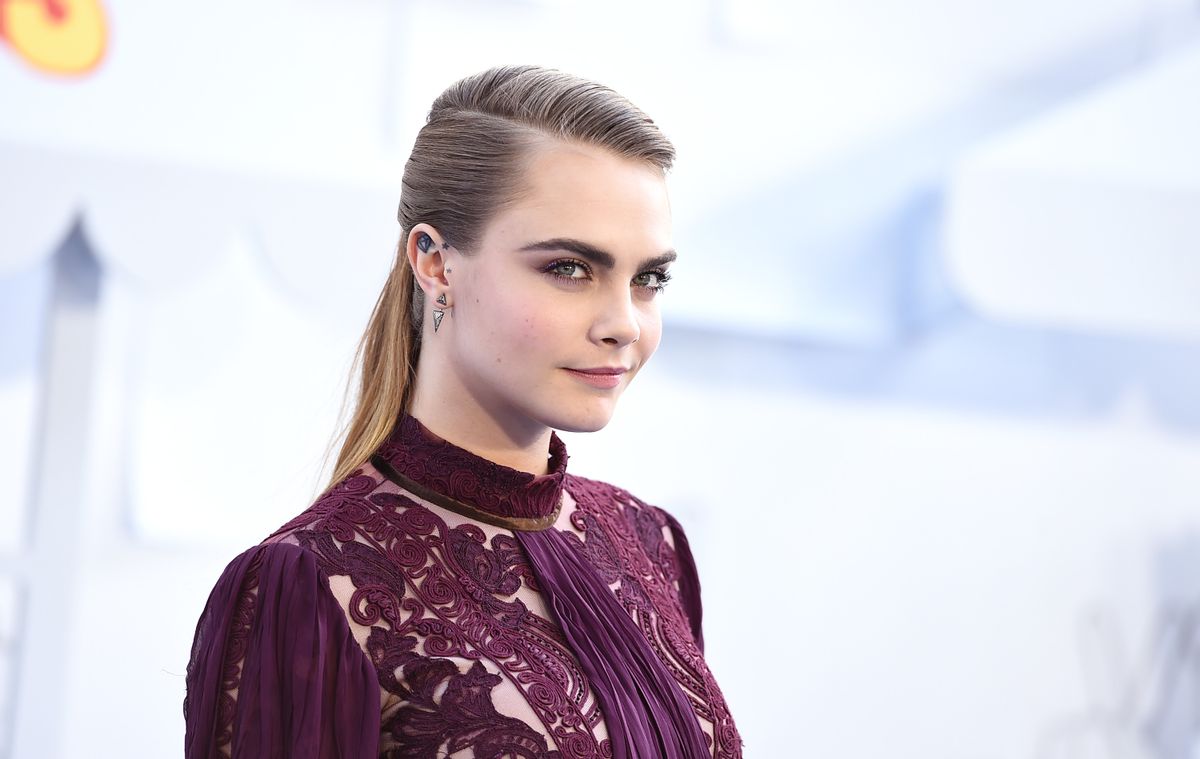The "B" in LGBTQ is there for a reason: Bisexuality is real. And this week, Vogue is learning that lesson the hard way.
Following the release of its July cover story on British model Cara Delevingne, the magazine is facing major backlash from the LGBTQ community for its portrayal of the star's bisexuality, which writer Rob Haskell characterizes as a "phase." Delevingne, who reveals in the profile that she is in a committed relationship with musician Annie Clark (better known as St. Vincent), has had public relationships with women in the past, which Haskell intimates are a response to the model's troubled relationship with her mother.
"Her parents seem to think girls are just a phase for Cara, and they may be correct," Haskell writes. "When I suggest to Cara that to trust a man, she might have to revise an old and stubborn idea of hers--that women are perennially troubled and therefore only women will accept her--her smile says she concedes the point.”
To LGBTQ advocates who have long fought for recognition of non-heterosexualities, Haskell's suggestion that Delevingne's sexual orientation is fleeting or ripe for scrutiny is offensive. One of those advocates, Julia Rodriguez, launched an online petition challenging the profile, and demanding a public apology from Vogue editor-in-chief Anna Wintour.
"The idea that queer women only form relationships with other women as a result of childhood trauma is a harmful (and false) stereotype that lesbian and bisexual women have been combating for decades," Rodriguez writes. "How could Vogue’s editorial staff greenlight this article and publish it without anyone raising concerns about this dismissive and demeaning language?"
The petition has already gathered nearly 12,000 signatures, and is littered with comments criticizing the magazine's insensitivity to bisexual or queer relationships. As Rodriguez points out, attitudes such as Haskell's -- implicitly backed by Vogue -- aren't innocuous.
"As a bisexual woman myself, I’ve experienced hurtful comments like this many times," Rodriguez explains. "People are quick to assume queer women’s identities are a 'phase' and to refuse to recognize the important relationships in their lives -- an attitude which can cause depression, result in families rejecting their daughters (or forcing them into abusive conversion “therapy”), and even put young women at risk of suicide. Vogue should have taken this opportunity to combat negative stereotypes, not reinforce them."
Learn more about the petition here.

Shares